
What is a CLO?

How to choose the right custodian for your managed assets

Solutions banks can offer during the COVID-19 pandemic

Hospitals face cybersecurity risks in surprising new ways

Tactical Treasury: Fraud prevention is a never-ending task

Post-pandemic fraud prevention lessons for local governments

Authenticating cardholder data reduce e-commerce fraud

Webinar: Digitize your AP processes to optimize results

Proactive ways to fight vendor fraud

4 tips for protecting your business against Coronavirus-related scams

The latest on cybersecurity: Mobile fraud and privacy concerns

The latest on cybersecurity: Vulnerability testing and third-party software

5 steps you should take after a major data breach

Fight the battle against payments fraud

Cybercrisis management: Are you ready to respond?

Protecting your business from fraud

The password: Enhancing security and usability

Fraud prevention checklist

Why KYC — for organizations

Cybersecurity – Protecting client data through industry best practices

BEC: Recognize a scam

How to improve your business network security

Webinar: Approaching international payment strategies in today’s unpredictable markets.

White Castle optimizes payment transactions

Higher education strategies for e-payment migration, fighting fraud

Webinar: A closer look at U.S. Bank AP Optimizer

How to improve digital payments security for your health system

Increase working capital with Commercial Card Optimization

Automate accounts payable to optimize revenue and payments

Understanding and preparing for the new payment experience

The surprising truth about corporate cards

3 timeless tips to reduce corporate payments fraud

Protecting cash balances with sweep vehicles
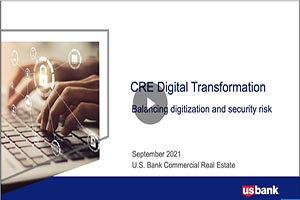
Webinar: CRE Digital Transformation – Balancing Digitization with cybersecurity risk
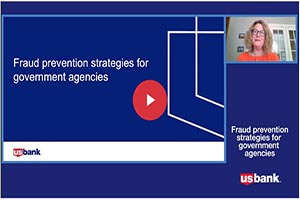
Webinar: Fraud prevention and mitigation for government agencies

5 steps to take before transitioning your business

How to sell your business without emotions getting in the way

10 tips on how to run a successful family business

How to test new business ideas

How to establish your business credit score

How to get started creating your business plan

How to redefine challenges with business collaboration

How to expand your business: Does a new location make sense?

8 Ways for small business owners to manage their cash flow

How to accept credit cards online

How to build a content team

5 financial goals for the new year

Year-end financial checklist

How to manage your money: 6 steps to take

Reviewing your beneficiaries: A 5-step guide

How to talk about money with your family

How to protect your digital assets in your estate plan

How to build wealth at any age

5 unexpected retirement expenses

Retirement planning in the gig economy

Key milestone ages as you near and start retirement

Comparing term vs. permanent life insurance

The connection between your health and financial well-being

7 things to know about long-term care insurance

8 steps to choosing a health insurance plan

Is a Health Savings Account missing from your retirement plan?

How to keep your assets safe

3 types of insurance you shouldn’t ignore

What is Medicare? Understanding your coverage options
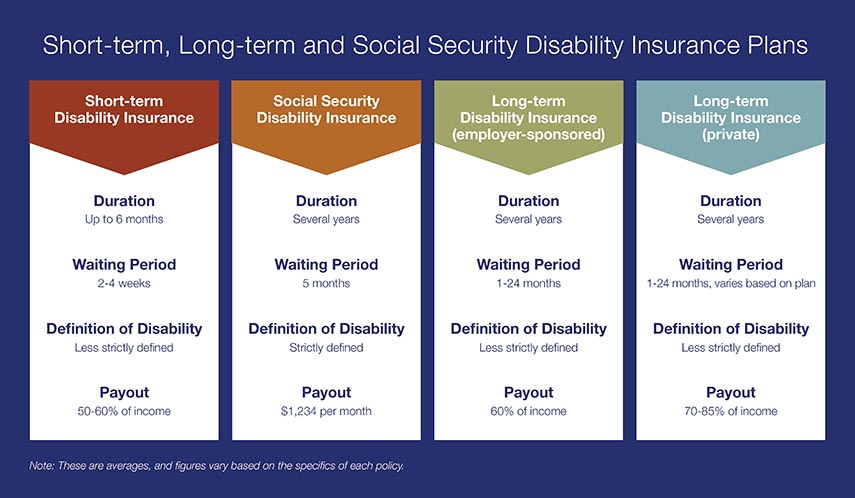
Is your employer long term disability insurance enough?

How much life insurance do I need?

How I did it: Switched career paths by taking an unexpected pivot

5 tips for being a great board member

How I did it: Transitioned from the military to a private sector career

How I did it: Joined a board of directors

How to start investing to build wealth

A beginner's guide to investing

Learn to spot and protect yourself from common student scams

4 ways to outsmart your smart device

Protecting elderly parents’ finances: 6 steps to follow when managing their money

Webinar: Protect yourself or your loved ones from elder fraud

Keep your finances safe and secure: Essential tips for preventing check fraud
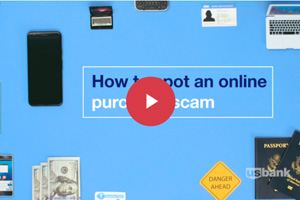
How to spot an online scam

How to avoid student loan scams

Webinar: How to fight off fraud
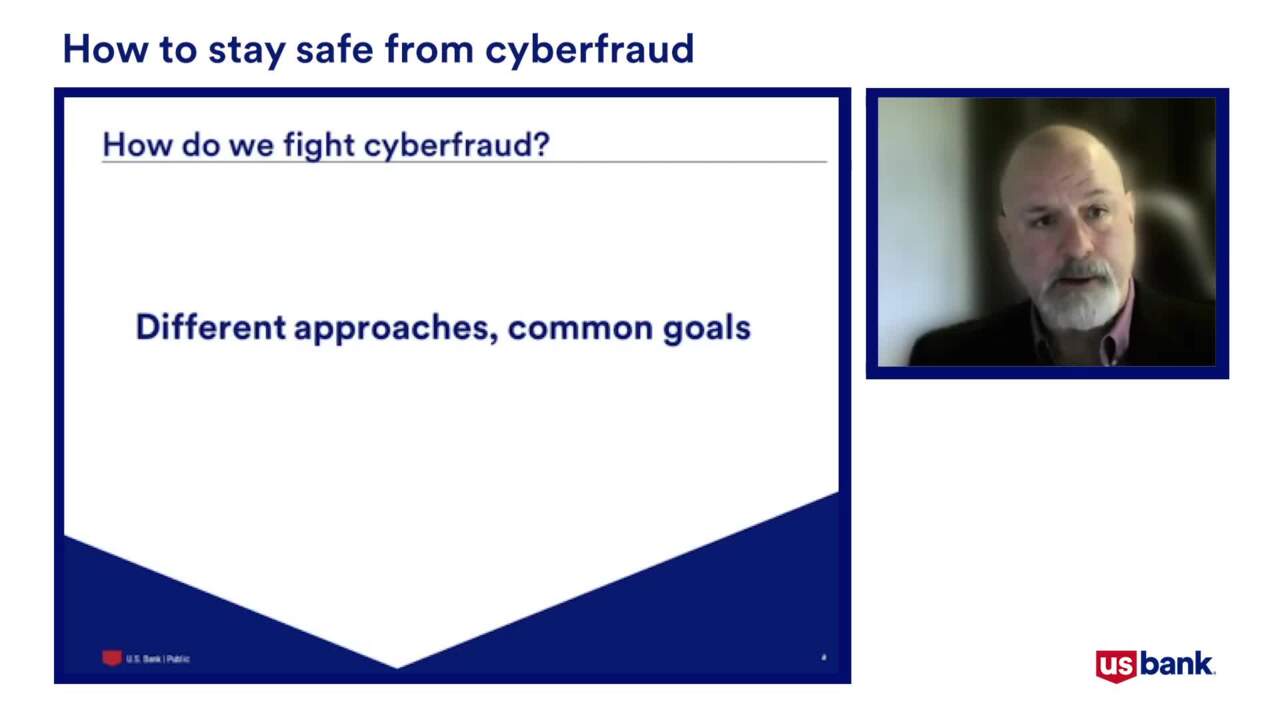
Webinar: How to stay safe from cyberfraud

Money muling 101: Recognizing and avoiding this increasingly common scam

What is financial fraud?

5 tips for seniors to stay a step ahead of schemers

Recognize. React. Report. Caregivers can help protect against financial exploitation

Learn how to spot scams related to COVID-19

From LLC to S-corp: Choosing a small business entity

What you need to know about identity theft

Recognize. React. Report. Don't fall victim to financial exploitation

Dear Money Mentor: What is cryptocurrency?

How you can prevent identity theft

Is online banking safe?

8 tips and tricks for creating and remembering your PIN

How-to guide: What to do if your identity is stolen

Webinar: U.S. Bank asks: Are you safe from fraud?

5 tips for creating (and sticking to) a holiday budget

Is raising backyard chickens a good idea financially?

Planning self-care moments that matter (and how to finance them)

The mobile app to download before summer vacation
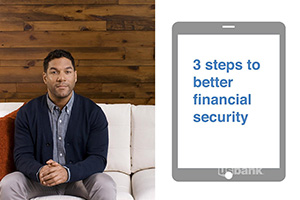
Webinar: Mobile banking tips for smarter and safer online banking

Adulting 101: How to make a budget plan

Webinar: Mindset Matters: How to practice mindful spending

Common unexpected expenses and three ways to pay for them

Here’s how to create a budget for yourself

7 steps: How couples and single parents can prepare for child care costs

30-day adulting challenge: Financial wellness tasks to complete in a month

Money Moments: 3 smart financial strategies when caring for aging parents

What’s in your emergency fund?

Understanding guardianship and power of attorney in banking

Your financial aid guide: What are your options?


